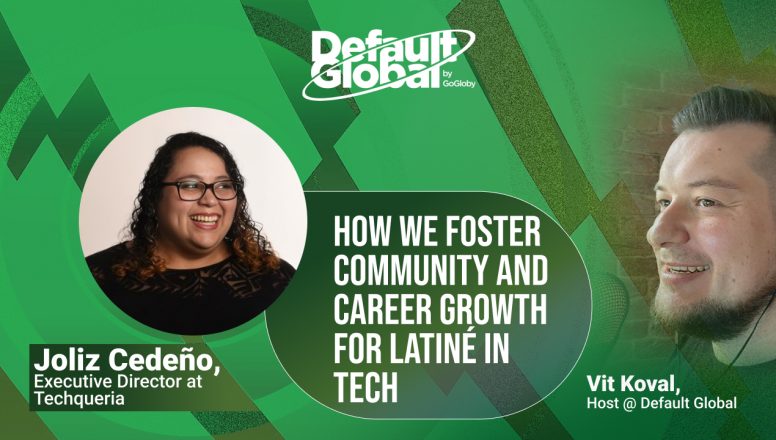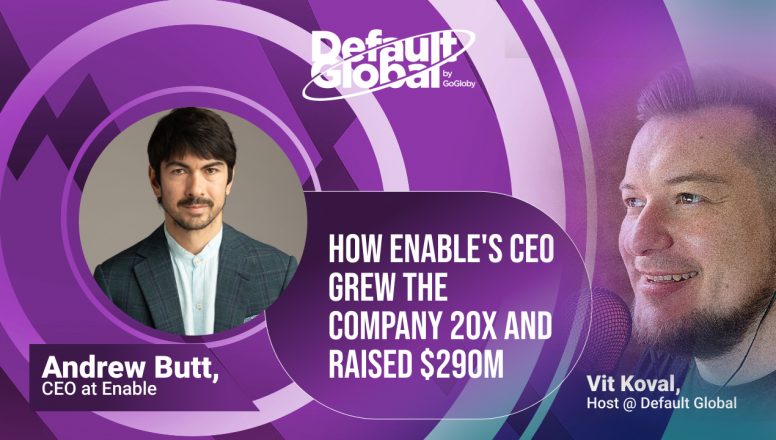Meet Ken Babcock, Co-Founder & CEO at Tango:
Meet Ken Babcock, CEO and Co-Founder of Tango, as we dive into his journey on the Default Global podcast. In the midst of the pandemic three years ago, Ken and his team launched Tango to revolutionize remote work challenges. Tango automates the creation of essential guides and SOPs, integrating them directly into workflows for seamless knowledge transfer.
With a background including Uber and Harvard Business School, Ken’s insights offer a fresh perspective on remote work, compliance, and the role of technology in shaping the future of work. Join us to discover Ken’s vision for a more efficient and connected remote work environment.
Listen Up: Ken Babcock, Co-Founder & CEO at Tango — Full Podcast Episode on Spotify
Watch Now: Vit’s In-Depth Talk with Ken Babcock
Quick Read: Ken Babcock, Co-Founder & CEO at Tango, Interview Highlights
Meeting Ken Babcock: The Man Behind Tango
In the latest episode of Default Global, I had the privilege of interviewing Ken Babcock, the CEO and Co-founder of Tango, an innovative tech company that focuses on making knowledge sharing in organizations more effective. Tango was born out of a need to improve knowledge transfer amidst the pandemic-induced shift to remote work.
“Once the pandemic hit, once people had moved remote, distributed, the conversations that we were having all of a sudden shifted tone. It wasn’t sort of this like, oh, supportive. Oh, yeah. Like, happy to check it out. It was we desperately need this and we need it yesterday,” Babcock shared.
Tango vs. Traditional Tools
When asked how Tango differentiates itself from traditional tools like Loom, Babcock emphasized the use case. While Loom is excellent for replacing meetings and giving updates, Tango shines when it comes to replicating processes, making it a more efficient tool for knowledge transfer.
Building a Global First Company
Drawing from his experience at Uber, Babcock highlighted the importance of communication and establishing a common language for thinking about the business when building a global first company.
Growing Tango Internationally
Tango’s growth strategy hinged on tapping into communities that cared about productivity, efficiency, and knowledge documentation. Babcock emphasized the importance of tailoring their approach to each market and finding the right communities and customers, regardless of location.
Going Bottom-Up
Tango’s approach to identifying their customer segment was rather interesting. They chose to target frontline employees, who resonated with the pain points that Tango aimed to solve. This bottom-up adoption strategy proved successful, as these employees became internal advocates for the company.
Building a Remote Team
Babcock stated that communication plays a critical role in managing a remote team. With his team of 41 members distributed across the globe, they have set norms in place to ensure effective communication.
Hiring Outside of the U.S.
For Tango, the decision to hire outside the U.S. was driven by the desire to acquire the best talent possible. This geography-agnostic hiring process was seen as a way to enrich their team with a wealth of diverse skills and experiences.
Raising Funds for Tango
Babcock offered some insights into their fundraising approach, emphasizing that capital is a commodity and that the company’s focus should always be on growth and improvement.
Looking Ahead
In the near future, Tango aims to be the “Waze app for the workplace”, guiding users on the best way to go about doing something based on past company experiences, what other companies are doing, and specific product recommendations.
In conclusion, my conversation with Ken Babcock was enlightening, highlighting the importance of effective knowledge sharing in organizations, especially in a remote work setting. His insights are a testament to the potential of innovative solutions like Tango in transforming the way businesses operate.






